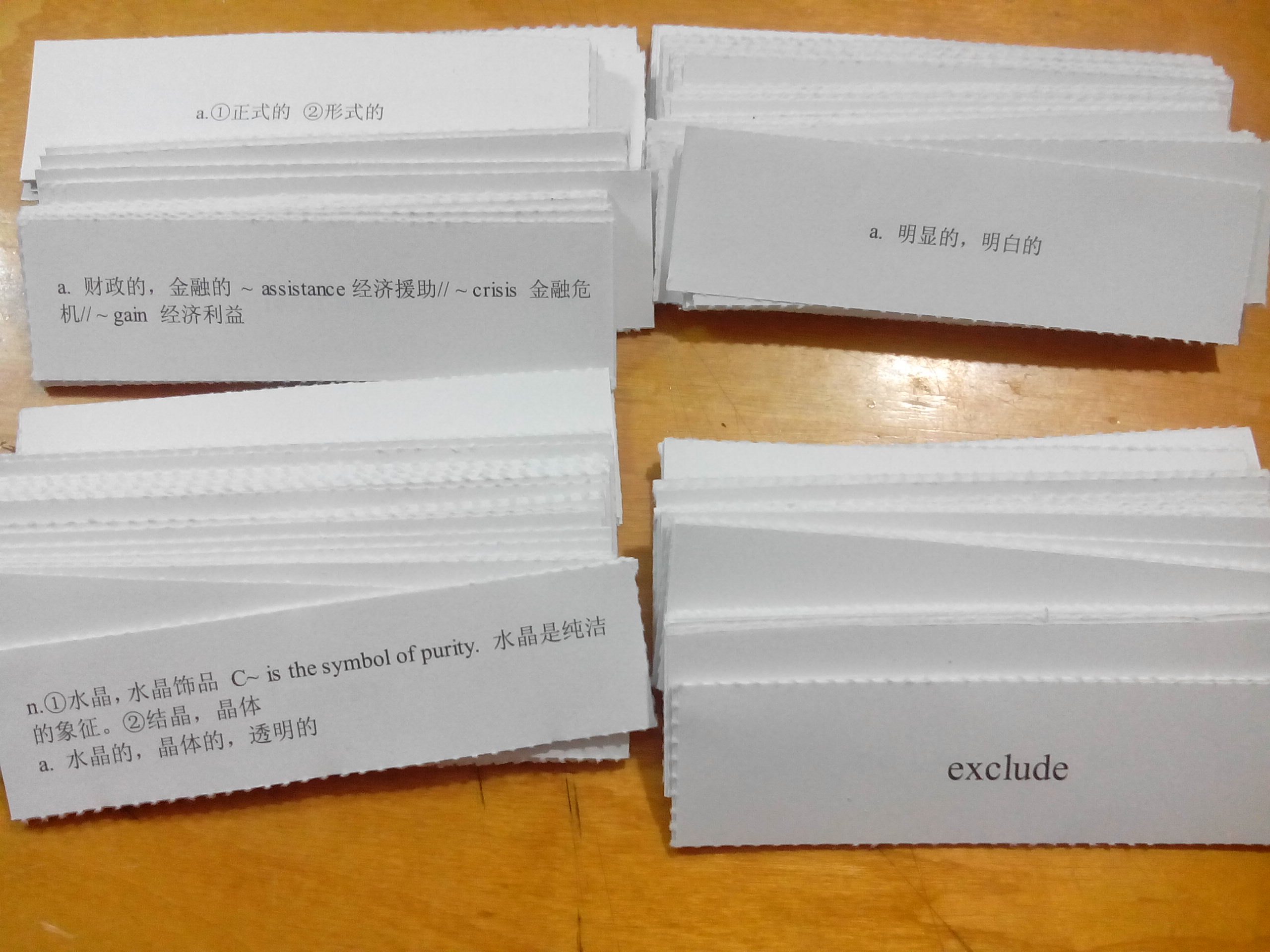 返回
教育头条
返回
教育头条

考研英语真题分享解析
关于考研英语的相关练习,今天小编带来了以下知识点的分享,希望对大家的学习有所帮助,预祝大家考试顺利。
1.Now the company is suddenly claiming that the 2002 agreement is invalid because of the 2006 legislation, and that only the federal government has regulatory power over nuclear issues.
译:现在,安特吉公司突然声称根据2006年制定的法规,2002年的协议无效,而且声称只有联邦对核问题具有管理权。
注:have power over 控制,管辖,支配
2.The legal issues in the case are obscure: whereas the Supreme Court has ruled that states do have some regulatory authority over nuclear power, legal scholars say that Vermont case will offer a precedent-setting test of how far those powers extend.
译:这个案件中的法律问题还很模糊,已裁定,各州对核电具有部分的权力。然而法律学者说,佛蒙特州案将提供一个先例,测试(州)这些权力能扩展到何种程度。
注:句末的of短语,原地顺译成并列分句,符合翻译之道
3.Certainly, there are valid concerns about the patchwork regulations that could result if every state sets its own rules.
译:当然,如果各州都制定自己的法规,那就可能产生乱七八糟的法规。所以,人们对此的关注也是合理的。
注:译文添加“所以”,顺应句意
4.But had Entergy kept its word, that debate would be beside the point.
译:但是如果安特吉公司遵守诺言,这样的争议就没有意义了。
注:beside the point 离题的;不相干的
5.The company seems to have concluded that its reputation in Vermont is already so damaged that it has nothing left to lose by going to war with the state.
译:安特吉公司似乎已经得出了结论:它的名誉在佛蒙特州已经非常狼藉,与州开战就已没有什么东西可损失的了。
注:注意has nothing left to lose的字面意思是“没有什么东西被留下来损失”,进行适当处理
6.But there should be consequences.
译:但还是有一些影响。
注:添加上“对安特吉公司来说”这几个字句意会更清楚一些
7.Permission to run a nuclear plant is a public trust.
译:许可经营核电站的行为是一种公众信任。
注:注意译文添加“行为”
8.Entergy runs 11 other reactors in the United States, including Pilgrim Nuclear station in Plymouth.
译:安特吉公司在美国还经营着11座反应堆,其中包括在普利茅斯的Pilgrim核电站。
注:不会翻译的专有名词可照抄
9.Pledging to run Pilgrim safely, the company has applied for federal permission to keep it open for another 20 years.
译:公司在保证安全运行Pilgrim核电站之后,已经向联邦申请准许它再经营20年。
注:现在分词作状语表示时间,即先“保证”,再“申请”
10.But as the Nuclear Regulatory Commission (NRC) reviews the company’s application, it should keep in mind what promises from Entergy are worth.
译:但是,当核管理会(NRC)公司的申请时,应该考虑到安特吉公司有多少承诺是值得信赖的。
注:keep in mind 记住;考虑到
明日真题预告:
1.In the idealized version of how science is done, facts about the world are waiting to be observed and collected by objective researchers who use the scientific method to carry out their work.
2.But in the everyday practice of science, discovery frequently follows an ambiguous and complicated route.
3.We aim to be objective, but we cannot escape the context of our unique life experience.
4.Prior knowledge and interests influence what we experience, what we think our experiences mean, and the subsequent actions we take.
5.Opportunities for misinterpretation, error, and self-deception abound.
6.Consequently, discovery claims should be thought of as protoscience.

7.Similar to newly staked mining claims, they are full of potential.
8.But it takes collective scrutiny and acceptance to transform a discovery claim into a mature discovery.
9.This is the credibility process, through which the individual researcher’s me, here, now becomes the community’s anyone, anywhere, anytime.
10.Objective knowledge is the goal, not the starting point.
11.Once a discovery claim becomes public, the discoverer receives intellectual credit.
12.But, unlike with mining claims, the community takes control of what happens next.
1.Now the company is suddenly claiming that the 2002 agreement is invalid because of the 2006 legislation, and that only the federal government has regulatory power over nuclear issues.
译:现在,安特吉公司突然声称根据2006年制定的法规,2002年的协议无效,而且声称只有联邦对核问题具有管理权。
注:have power over 控制,管辖,支配
2.The legal issues in the case are obscure: whereas the Supreme Court has ruled that states do have some regulatory authority over nuclear power, legal scholars say that Vermont case will offer a precedent-setting test of how far those powers extend.
译:这个案件中的法律问题还很模糊,已裁定,各州对核电具有部分的权力。然而法律学者说,佛蒙特州案将提供一个先例,测试(州)这些权力能扩展到何种程度。
注:句末的of短语,原地顺译成并列分句,符合翻译之道
3.Certainly, there are valid concerns about the patchwork regulations that could result if every state sets its own rules.
译:当然,如果各州都制定自己的法规,那就可能产生乱七八糟的法规。所以,人们对此的关注也是合理的。
注:译文添加“所以”,顺应句意
4.But had Entergy kept its word, that debate would be beside the point.
译:但是如果安特吉公司遵守诺言,这样的争议就没有意义了。
注:beside the point 离题的;不相干的
5.The company seems to have concluded that its reputation in Vermont is already so damaged that it has nothing left to lose by going to war with the state.
译:安特吉公司似乎已经得出了结论:它的名誉在佛蒙特州已经非常狼藉,与州开战就已没有什么东西可损失的了。
注:注意has nothing left to lose的字面意思是“没有什么东西被留下来损失”,进行适当处理
6.But there should be consequences.
译:但还是有一些影响。
注:添加上“对安特吉公司来说”这几个字句意会更清楚一些
7.Permission to run a nuclear plant is a public trust.
译:许可经营核电站的行为是一种公众信任。
注:注意译文添加“行为”
8.Entergy runs 11 other reactors in the United States, including Pilgrim Nuclear station in Plymouth.
译:安特吉公司在美国还经营着11座反应堆,其中包括在普利茅斯的Pilgrim核电站。
注:不会翻译的专有名词可照抄
9.Pledging to run Pilgrim safely, the company has applied for federal permission to keep it open for another 20 years.
译:公司在保证安全运行Pilgrim核电站之后,已经向联邦申请准许它再经营20年。
注:现在分词作状语表示时间,即先“保证”,再“申请”
10.But as the Nuclear Regulatory Commission (NRC) reviews the company’s application, it should keep in mind what promises from Entergy are worth.
译:但是,当核管理会(NRC)公司的申请时,应该考虑到安特吉公司有多少承诺是值得信赖的。
注:keep in mind 记住;考虑到
明日真题预告:
1.In the idealized version of how science is done, facts about the world are waiting to be observed and collected by objective researchers who use the scientific method to carry out their work.
2.But in the everyday practice of science, discovery frequently follows an ambiguous and complicated route.
3.We aim to be objective, but we cannot escape the context of our unique life experience.
4.Prior knowledge and interests influence what we experience, what we think our experiences mean, and the subsequent actions we take.
5.Opportunities for misinterpretation, error, and self-deception abound.
6.Consequently, discovery claims should be thought of as protoscience.

7.Similar to newly staked mining claims, they are full of potential.
8.But it takes collective scrutiny and acceptance to transform a discovery claim into a mature discovery.
9.This is the credibility process, through which the individual researcher’s me, here, now becomes the community’s anyone, anywhere, anytime.
10.Objective knowledge is the goal, not the starting point.
11.Once a discovery claim becomes public, the discoverer receives intellectual credit.
12.But, unlike with mining claims, the community takes control of what happens next.
好了,就说这么多,希望对大家有用。我是你的学习顾问王敏,选课有问题,快来找行家,我会为你匹配最适的课程,欢迎大家关注我微信(18560125702),学姐近10年教培行业工作经验,从现在开始我就是你的私人顾问,为您的课程进行一个详细系统的讲解哦。返回教育宝头条
【免责声明】本文仅代表作者本人观点,与教育宝无关。教育宝对文中陈述、观点判断保持中立,不对所包含内容的准确性、可靠性或完整性提供任何保证。请读者仅作参考,特此声明!
相关推荐
-
复试是考研中很关键的一步在口语和听力部分有什么诀窍可以保证高分
考研英语 2018年08月15日 16:55:44 -
考研英语 2018年08月22日 00:53:16
-
考研英语 2018年09月19日 09:57:04
-
雅思阅读Global Warming in New Zealand真题讲解
考研英语 2018年09月19日 09:57:08 -
考研英语 2018年09月19日 13:41:54





